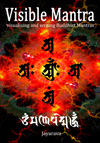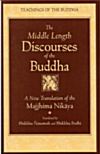Deathless is a very evocative synonym for Nirvaṇa and features in these words which are spoken to Brahmā-sahampatti by the Buddha just after his Awakening. The Buddha pauses for dramatic effect to consider whether he should teach, or whether it might be too difficult. After a request from Brahmā the Buddha 'realises' that he must teach.
The locus classicus is the Pāli Aryapariyesanā Sutta, but as shown below there are parallels in later biographical texts as well. I've chosen to illustrate the version in the Lalitavistara Sūtra (LV 25.34) because it is in Sanskrit:

Transliteration
apāvṛtās teṣam amṛtasya dvāra brahman ti satataṃ ye śrotavantaḥ
praviśanti śraddhā na viheṭhasaṃjñāṃ śṛṇvanti dharmaṃ magadheṣu sattvśṛṇvanti dharmaṃḥ
Translation
The doors of the deathless are open, Brahmā, for those who have ears.
They enter with veneration, devoid of hatred, the beings in Magadha listen
Notes
There are parallel verses in the Pāli Canon in the Aryapariyesanā Sutta (Majjhima Nikāya 26, PTS i.170), and in the Mahāvastu (Mvu 3.319).
The Aryapariyesanā Sutta reads:
|
apārutā tesaṃ amatassa dvārā ye sotavanto pamuñcantu saddhaṃ vihiṃsasañntilde;ī pagunaṃ na bhāsiṃ dhammaṃ paṇītaṃ manujesu brahme ti |
The doors of the deathless are open for them - let those who have ears give up the funeral rites Forseein bother, Brahmā, I did not speak the rarified, subtle Dhamma among human beings |
The Mahāvastu reads:
|
apāvṛtaṃ me amṛtasya dvāraṃ brahmeti bhagavantaṃ ye śrotukāmā śraddhāṃ pramuṃcantu viheṭhasaṃjñāṃ viheṭhasamjño praguṇo abhūṣidharmo aśuddho magadeṣu pūvaṃ |
I have opened the doors to the Deathless, Brahma. Let those who desire to hear the Blessed One give up the funeral rites based on a harmful idea.
For already there has arisen among the Magadhans a Dharma that is impure, based on a harmful idea, and wrong. |



